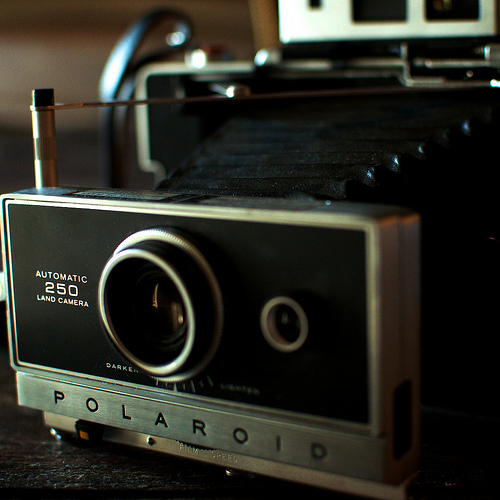Print Edition: February 6, 2013
An ode to dad humour
My dad was recently bitten by a cat.
The extent of the damage was two fairly deep puncture wounds, which he obtained by enthusiastically petting a particularly old and grumpy cat. Twenty minutes after the event, my father was simultaneously putting on a brave face and moping.
“How’s it feeling now?” I asked sympathetically.
In answer he began licking the back of his hand and vigorously rubbing his ears with it.
“I was bitten by a radioactive cat!” he proclaims, brushing nonexistent whiskers. “I am becoming Cat Man!”
My father, like many other fathers, has a peculiar sense of hilarity. Pun-reliant, often expectant of a groan or drumroll, usually followed with a wide grin and waggled eyebrows for emphasis. It’s amazing to me that something can be both spectacularly funny and unfunny at the same time.
My father fervently pretends that YOLO stands for “You Obviously Like Owls,” no matter how many times I explain it to him.
This is dad humour.
Sometimes I pretend to hate it, and sometimes it’s so gloriously unfunny that we both kill ourselves laughing. But I think I’ve come to the conclusion that dad humour makes the world a better place. Sometimes we need to take the world a little less seriously, and that’s one of the things my father has taught me – bad puns and all.
“Yes, dad,” I replied, with a grin and a sigh. “You are Cat Man.”
Meet the web’s new gatekeepers
The early architects of the internet envisioned a radically democratic future for news and information. They hoped broadcasters could be bypassed to give people direct access to unfiltered data and opinion.
This more or less happened. And then something else happened. The internet got big. Really big.
People were overwhelmed by a sea of digital information. Content creation skyrocketed.
Web 2.0’s solution was customized filters to give people exactly (and only) what they want. Facebook’s newsfeed uses a complex series of algorithms based on demographic information and “use habits” to anticipate the sort of content it thinks you want to see. The same goes for Google; two people could search the same keyword and produce wildly different results.
In Eli Pariser’s book on the subject, The Filter Bubble, he describes this new model of web use as dangerously personalized. Gatekeeping, the selection of which stories and information people actually see, was once dominated by editors, publishers and producers. One-way broadcasters. New media hasn’t made this process disappear. Instead, the responsibility has been silently shifted from humans to long sequences of computer code.
For the sake of convenience, we are less and less likely to encounter things that challenge our worldview or ideology. We have begun to live in a bubble of information plied to our personal likes and dislikes. And that is a precarious place to be.
Please extend library hours
It was fall semester; I was in the library one evening working on a research paper. I had just started to get into my work and I was getting things done. I had my focus. It was at that moment a security guard walked up to my table. We had a brief chat and when I thought we were done I went back to my work. He was still standing there for another 10 seconds before I looked up to inquire what the deal was.
“Library’s closing.”
This couldn’t be, I thought to myself. Was it 10, already? I looked up at the clock and it was just hitting six. It is six o’clock and the library is closing. It was Friday at a point in the semester when academic responsibilities intrude. I felt safe in assuming the library would be open later because this is, after all, a university.
I am already thinking ahead to midterms, papers and final exams for this semester. At the very least, heading into exam period, the library should extend its hours. Many of us do study late into the night and I am certain many students would take advantage of extended hours. During the day I find myself running errands or at work; during the day, I find the library a little loud. At night, many students go home and it is quiet.
If only it was open later.
Sorry, my butt wanted to talk to you, not me
The pocket dial.
Flip phones kept us from the embarrassment and technically the advent of locking our smart phones should. But sometimes those things fail us—or we fail them—and we’re left scrambling for the “end” button or hoping against hope the other person doesn’t pick up.
It’s not always awkward, I suppose. Sometimes it’s good-natured if it’s someone on your recent calls list. You can laugh it off with them in that “we’ve both been there” kind of way that most stand-up comedians base their material on.
But sometimes the pocket dial is not funny. Sometimes it’s terrifying. Sometimes you call that person on your contact list you haven’t talked to in five years but, for whatever reason, have never deleted from your phone. You keep them on there, maybe just in case you’re ever caught with no one to call and they pick up or maybe because having a lot of people on your contact list makes you feel important.
For whatever reason, they’re still there and they’re being called and as you try to hit the red panic button your heart rate skyrockets and your fingers become useless. You feel like you’re straddling the space between life and death. You accidentally leave a voicemail of fumbling and muffled swearing and your face turns beet red.
And you can’t get the muffled voicemail or the out-of-the-blue missed call back. It’s out there.
It’s out there forever.






